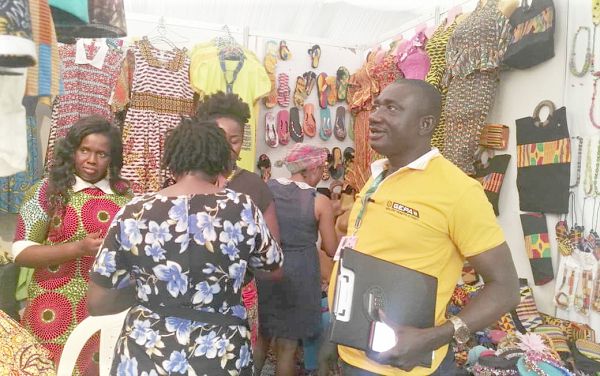
Ghanaian entrepreneurs asked to form partnerships
Ghanaian entrepreneurs have been urged to eschew individualistic behaviour and come together or form partnerships that will enhance their production capacities to produce to meet market demands.
The Director of Research and International Cooperation at the Ghana Export Promotion Authority (GEPA), Mr Maxwell Osei-kusi, said Small and Medium Enterprises (SMEs), especially in the Non-Traditional Exports (NTEs) sector start well but folded up at some point because they are not on their own able to produce in large quantities to benefit from economies of scale.
“Our expectation is that they come together, build the synergies and become global companies or conglomerates that can produce to compete in the market place,” he said in an interview during the 2018 Lagos International Trade Fair in Nigeria.
Mr Osei-Kusi explained that a major challenge facing companies is the nature of their size, a situation which made it difficult for them to expand.
He said if production was enhanced, the market will continue to enlarge.
High expectations
The director explained that the export sector was one of the key drivers for economic transformation, adding that so as far Ghanaian products and services are concerned, expectations are that from the capacities available, production will increase because of market availability.
Our expectations are high
We want people to continue to patronise made-in-Ghana products not only in Nigeria but the whole ECOWAS, European Union, the United States (US) market under AGOA and other African countries. That is our main priority which we have strategised,” he indicated.
“We have a lot of the processed foods such as gari and other cereals, ginger, spices, chilies, alcoholic beverages among others.
These are the products that we are promoting now within the sub-region,” he said.
However, he said there was a challenge of promoting other products such as garment and textiles because of competition, citing Nigeria as one country seeking to build its industry.
The competition is from Asia and not us
We qualify under the ECOWAS Trade Liberalisation Scheme and we can sell textiles and garments.
It is at the borders that these problems occur but we are managing,” he explained.
Mr Osei-Kusi said with regard to exporting textile to the US market, it is not only the afro-centric, traditional and local fabrics sewn to fit, but the focus is on the mainstream garments; shirts, blouse and sports wear which some companies in Ghana have started producing.
Export Promotion
The government’s transformational agenda in relation to exports has been to introduce policies and programmes to create an enabling environment for economic growth.
These policies include the One-district, One-factory, One-region, One-industrial park and the planting for food and jobs.
On value added agricultural produce, the GEPA has supported agro-processing of agricultural produce through many activities. — GB